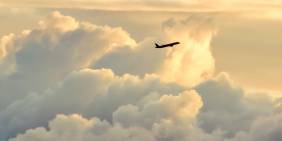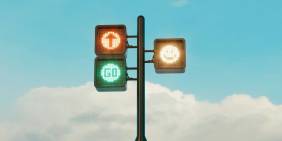
On a mission to save lives

New chair of Water Safety New Zealand Peter Kara MInstD says his biggest challenge is reducing the number of preventable drownings.
As a chemical weapons inspector in Iraq during the Gulf War and then working for the United Nations affiliate, the Organisation for the Prohibition of Chemical Weapons (OPCW) as a full-time inspector, Peter Kara MInstD (Ngāti Kahungunu and Ngāti Rongomaiwahine) has seen things he would rather not talk about. Destruction and human suffering were part of those experiences.
Now he is dealing with death and suffering on another scale – preventable drownings in New Zealand. As the new chair of Water Safety New Zealand, Kara is determined with others to reduce the number of people needlessly losing their lives.
“I relish the task and have some big agendas, but the biggest thing in my mind is how we reduce the number of preventable drownings,” he says. “We can’t continue doing what we’re doing.
And that’s a massive challenge. It’s something that keeps you awake at night because you’re thinking ‘how do we reach those target groups’?” Kara says while the water safety sector and partners are really good at saving people when they are called upon, they still haven’t found that magic solution to stop people doing the things that lead to danger – and death.
“Some of it is human nature. The water is a great place to go and play, and do lots of things, but it can have a price. We are trying to get people to understand a different day can bring different conditions.”
The education is ongoing and he is hoping technology, data analytics and AI will all have a major influence in reducing fatalities.
“There’s some real challenges and while I look forward to them, I find the weight on the shoulders to get it right. That’s not a problem because we should all be invested in something like this. We are talking about our community. It could be any member of our family, our whānau affected; it could be a grandchild, a grandparent, a father, a mother, a son, a daughter. It’s really important to get it right.”
Kara says, like most things, the simple approach is always the best. That means listening to everyone around the board table because someone might have that idea or that strategy – or that magical solution – that needs to be explored further. The other thing, he says, is to ensure the board is providing all the tools to the operational teams that are doing the work.
“We have a fantastic operational teams in Water Safety NZ and our partner agencies, such as Drowning Prevention Auckland, Coastguard New Zealand and Surf Life Saving New Zealand, and all our board members are involved in the water sector and outdoor recreation. They are very much attuned, from learning to swim right through to being Waka Ama, to surf lifesaving, to Coastguard New Zealand to our iwi partners. Everyone has a huge role to play in preventable drownings.”
Kara says they have just completed a board matrix and it is being reviewed. “I think the skills matrix may include things that weren’t in there before because they haven’t been an issue. It’s really important to have diversity. Can we do better? We can always do better if I’m honest.
“One of the most important things is to always keep the door open. That’s something our previous board chair did and I’m keen to continue as well.”
Kara says they should also be open to ideas from other organisations because the mahi is the same, no matter what organisation you are from. “The message is really clear and it’s about drowning prevention. Of course, you can’t do that work if you’ve got a board that’s not functional. It’s also really important to recognise when you need to put your hand up and get external advice.”
“I think the skills matrix may include things that weren’t in there before because they haven’t been an issue. It’s really important to have diversity. Can we do better? We can always do better if I’m honest.”
He mentions the IoD and being able to tap into its “huge wealth of knowledge”. “And I’m glad I’m on a governance board in New Zealand and not anywhere else because I know the moment I put my hand up and ask for help, someone’s going to give us advice.”
That contrasts sharply with his nearly 20 years’ experience travelling the world for the OPCW and New Zealand Defence. “The first thing someone asks is ‘what’s in it for us’?”
Kara is now principal advisor emergency management for Te Whatu Ora Nelson Marlborough. He is also a member of Coastguard New Zealand board’s Te Puhara Mana Iwi, a Māori Pacifica and Asian focus advisory group made up of board members, volunteers and staff. It was his love of the ocean that led him to join the local Coastguard unit in Whakātu Nelson.
He says the defining moment in his career came when he joined the territorials. “I quite liked that lifestyle and the recruiter sold me on joining the Army, where I fell into becoming a medic. It was a great learning place and something you carry with you when you leave the military.
“I didn’t want to be a soldier, just carrying around a pack, and then lo and behold I got to carry an even bigger pack for my medical supplies. I’ve met quite a few of my military colleagues around the traps doing some really exciting stuff, and it comes down to the background and the training they’ve had through the military. It has prepared a lot of business leaders to do some great things in corporate world.”
Kara was part of the UN inspection team sent to find weapons of mass destruction during the Gulf War in 1991. Like many New Zealand Defence personnel, there are “things we talk about and things we don’t”.
He does mention a brush with Saddam Hussein’s notorious Republican Guard, who were “very keen for us not to leave a particular area with the information we had”. Although military, Kara was a civilian on a mission. “Those experiences set you up and you learn a lot of things about yourself and people in general.”
With that experience, in 1996 Kara applied for a job with the newly formed OPCW, created to administer the Chemical Weapons Convention. Here, he added another string to his bow – diplomatic negotiations – as he visited more than 60 countries to enforce treaty compliance.
“One of the reasons I joined the OPCW after Iraq was to rid the world of CW, knowing what impact it has. Years later I was able to visit surviving CW casualties in Iran, who were scarred mentally and physically. Many were just children when they were attacked. This left a lasting impression on me.”
He is proud to have played a part in reducing the risk of chemical weapons being used in warfare. In 2013, he received a Nobel Peace Prize certificate for his part in the OPCW’s “extensive efforts to eliminate chemical weapons”.
Leaving the military, Kara found the quiet life in Nelson to his liking. He also found catharsis in renovating his house but couldn’t stop the late-night binges on CNN and the BBC trying to keep abreast of events in the political hotspots.
“I then landed up in emergency management health because I was able to give back. And it turns out I’m good at what I do, helped with having all those experiences. I love working in health and I love that every day is different. I love some of the challenges, although Covid-19 was something I wouldn’t wish on anybody. But all our planning around that had been going on for years and we were ready for it.
“I like giving back to the community – everything I’ve learned in the army, the military, the knowledge, the skills and education. And it’s only right to give back into boards. There is no financial incentive, I do it because I’m passionate. There are a lot of incredible people doing incredible things out there. I’m just privileged and I guess in some ways humbled.”
Kara says he has only learned recently how to talk about the things he’s done, “part of my personal stuff”. He has also been acknowledged by his community, being named Kiwibank local hero award winner in 2022 for his services with Coastguard Nelson. He also received a New Zealand Search and Rescue award for operational activity in 2021.
“I’m not entirely sure where I’m heading in this journey. The moment I stop adding value is the moment it’s time to leave because you’re just holding the process up for everyone else. You’ve got to add value to whatever you do. Right?


